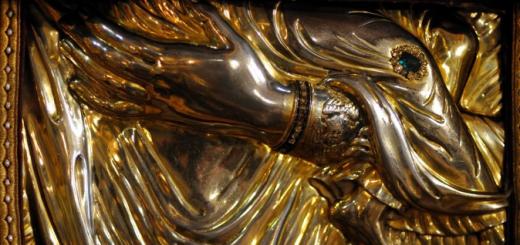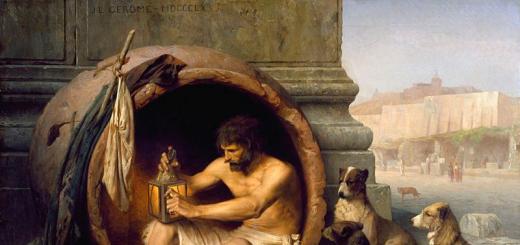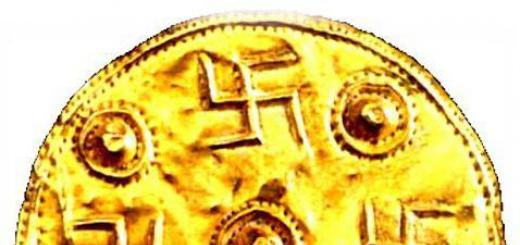Original taken from sobiainnen in
Pleased with the level of readers of the analytical blog "Learn Sobyanin". Recently posted my article "Strategic planning in the USA: military power, breakthrough technologies and the dollar" in collaboration with M.M. Shibutov http://sobiainnen.livejournal.com/47897.html The article was republished in full on more than fifteen analytical resources and blogs - RELGA, Blog-book Octopus, IAC MSU, Central Asian Thick Journal, Center for Strategic Estimates and Forecasts, LJ Guralyuk, LJ Otyrba, LJ skalozub52, LJ "For the Eurasian Union!", LJ Mikhail Chernov and others.

Isaac Newton. Painting by William Blake, 1805
Two added very important meanings. I was pleased with the blogger Anatoly Aslanovich Otyrba http://otyrba.livejournal.com/191805.html (St. Petersburg economist, writes good articles in the scientific and Russian business press). In developing the idea of the continuity of the US conceptual and strategic dominance in the financial sphere to the British Raj, he gave a link to the article by Julius Lvovich Mentsin "The Mint and the Universe", which is reproduced in full below. And the illustration of the blog-book Octopus http://www.peremeny.ru/books/osminog/5850, where the article was posted a day earlier than the blog of Anatoly Otyrba, accentuated THE SAME THOUGHT - by William Blake's painting "Isaac Newton" - "strategic Anglo-Saxon architect being" (Bretton-Wood 1944 - USA might, Isaac Newton - Rule, Britain!, Anglo-Saxon leadership continuity). This is truly the right saying at our East Faculty of Leningrad State University / St. Petersburg State University: "The world is not small - the layer is thin!".
I thank Anatoly Aslanovich Otyrba and Oleg Viktorovich Davydov, editor-in-chief of "Octopus", for valuable additions of meanings. I thanked Julius Lvovich Mentsin over the phone, but I would like to publicly thank you here again for this article and other similar articles, for example, on the role of Nicolaus Copernicus. Sincere thanks to all of you, dear fellow analysts, scientists! To all who supported this first of a series of articles on strategic planning in the countries of the Caucasus and Central Asia, to which the United States refers as an active screenwriter and an influential force in the Caspian-Central Asian region.
According to the article by Yu.L. Mentsin. There is a rule in military strategy - "compromise is worse than defeat", because. defeat mobilizes and forces radical and total rearmament and restructuring of military affairs, while compromise consolidates the status quo insufficient for victory. Here the experience of Great Britain is extremely interesting - of the three proposals for financial reform, the most radical provisions were taken from the proposals of William Lound, Isaac Newton and John Locke (the second and third were called by the state from the world of science). The exchange of money cost the treasury of the British crown 2.7 million pounds, which was then almost one and a half of its annual income. The state decided not to shift the cost of minting new coins and exchanging money onto the shoulders of the population, and allowed everyone to enrich themselves. Moreover, in the future, Britain offered the banking houses of Europe a very favorable exchange rate for Europeans and unfavorable for Britain for the exchange of silver money for a golden guinea, which made it possible for European bankers and merchants who traded with colonies in Asia and America to enrich themselves. As a result of such a "unprofitable" operation, the UK economy solved its problems in a matter of years and became the undisputed leader in Europe in terms of attracting investments, living standards, and economic development rates. The trust of the population and the faith of external players in the success of Britain, as it turned out, are very expensive!
As I know, a number of Moscow and St. Petersburg think tanks and groups are now working on similar complex and super-efficient financial strategies that will allow the Eurasian Union to quickly solve the current difficult financial problems of Russia and its allies and become a world leader. God grant our colleagues success and attention of the highest Russian authorities in this work. For the rearmament of the Armed Forces, for the development of Eastern Siberia and the Far East, oh, how big money is needed. Yes, and to improve the standard of living of the population of Russia, Belarus and Kazakhstan, other potential members of the Eurasian Union is also the most important task. And this also requires a lot of money.

In the photo: November 20, 2007, Queen Elizabeth II of Great Britain and all the people of her country and the Commonwealth countries celebrate 60 years of marriage with Lord Philip Mountbatten.
Mentsin Yu.L. Mint and the Universe. Newton at the origins of the English "economic miracle". Great Recoining, or monetarism in English. Newton and Marx. Mystery of the golden guinea. The public debt of England and the industrial revolution. At the base of the English "financial pyramid". // Issues of the history of natural science and technology. 1997. No. 4.
http://krotov.info/history/17/1690/1696menz.html
Library of Priest Yakov Krotov.
MENTSIN Yuliy Lvovich, Ph.D. Phys.-Math. Sci., Senior Researcher, State Astronomical Institute. PC. Sternberg (GAISh) Moscow State University. M.V. Lomonosov, head of the Museum of the History of the University Observatory and SAI.
Notes are embedded in the text and are enclosed in curly brackets.
Part 1 (under the cut). Newton at the origins of the English "economic miracle". Great Recoining, or monetarism in English.
http://sobiainnen.livejournal.com/49288.html
“It was in England that the decisive steps were taken. Everything there went naturally, as if by itself, and this is the most fascinating mystery that the world's first industrial revolution conceived, which marked the biggest gap in the history of modern times. So why England? "
F. Braudel. "The Dynamics of Capitalism".
In the XVIII century. England has gone from a relatively backward and poor country, whose economy was also undermined by revolutions, wars and unrest, to a powerful power with the most advanced and rapidly developing industry in the world.
The mystery of this "economic miracle" has long worried historians. But if earlier they saw the main cause of the English industrial revolution in technology - the invention and introduction of machines into production, then more and more attention has recently been paid to the analysis of the socio-political and demographic conditions that prevailed then in the country, the creation of a communications network in it, the situation in the world markets, etc. (see, for example, works -). At the same time, the financial system of England is of particular interest to researchers. Thus, it is emphasized that it was the creation of this system, which had amazing flexibility and reliability, that allowed British banks for many decades to operate with funds, the volume of which far exceeded the real possibilities of the national economy, and, thanks to this, to provide domestic entrepreneurs with significant loans at very moderate interest rates. In turn, it was precisely this generous crediting of production that made possible its radical modernization, including the massive introduction of expensive steam engines. (see about this, ,).
But how, in fact, did England manage to create this mechanism for financing the economy and then, for a long time, maintain its uninterrupted operation? In answering this question, in my opinion, it is important to analyze the event that became a kind of prologue to the English "financial revolution" - the monetary reform of 1695-97, during which all spoiled and false silver coins.
Isaac Newton (1643-1727), appointed Warden in 1696, and in 1699 Director (Master) of the Royal Mint, took an active part in the preparation and implementation of this reform, called the Great Recoinage. Newton held the post of Director without change until 1725, and at the same time, for his great services to the state, he was elevated to knighthood by Queen Anne until 1705. In his retirement, he secured the appointment of his son-in-law, John Conduit (1688-1737), the husband of Newton's niece C. Barton, to the post of Director, who by that time had already served as Deputy Director for several years. Thus, the succession of management was ensured, and we can rightfully speak of an almost 40-year "Newton's era" in the leadership of one of the most important financial institutions in England.
It should be noted that both Newton's participation in the monetary reform and his leadership of the Mint are among the least studied aspects of the scientist's multifaceted activities. This is partly due to the fact that the necessary archival documents remained unknown for a long time, and partly due to the lack of serious interest in this topic among researchers. In fact, Newton's biographers see in his activities as head of the Mint only work to solve administrative and economic problems. This work, emphasizes R. Westfall, demanded enormous dedication from Newton, but in its importance and complexity it was incommensurable with his scientific achievements. In addition, biographers are forced to state that as an administrator, Newton did not always behave with dignity, showing despotism, intolerance and cruelty, especially when fighting personal opponents.
(Archival documents related to Newton's management of the Mint were discovered only in the 20s of our century and were even exhibited in 1936 at an auction in London. However, their partial publication became possible only in the post-war years due to fears that the content contained in them, information about the procedures for the production of money can be used by German intelligence.This publication was carried out in a number of his works by the Director of the Mint J. Craig, and it is these works that are the fundamental source for modern researchers of Newton's work.)
In principle, there is no reason to doubt the conclusions of historians. Suffice it to recall how Newton behaved in disputes about scientific priority. At the same time, one should not forget the appalling state of anarchy in which the Mint was at the time of Newton's arrival. In an institution that was supposed to be distinguished by special discipline, drunkenness, fights and theft reigned, including the theft of coins, which the employees themselves then sold to counterfeiters. It is not surprising, therefore, that in the fight against corruption, theft and counterfeiting of money, Newton was forced to be firm, as well as to seek the expansion of his administrative and legal powers, including the creation of his own prison at the Mint and a police force investigating all kinds of financial crimes and violations throughout the country. . In fact, the Mint under Newton, together with the then established branches in a number of other cities, turned into a kind of empire, characterized by a degree of centralization and control that was achieved by Great Britain only by the middle of the 19th century. .
Newton's biographers are generally unanimous that, while reorganizing the Mint, he showed, especially in the first years of his work, amazing activity, which can hardly be explained by the scientist's industriousness alone. So, G.E. Christianson notes that the Mint became, in effect, Newton's "secular religion." But is it not possible in this case to assume that the solution of current problems, which has so disappointed historians with its routine, was subordinated, in Newton's eyes, to the task of achieving some special goal, apparently only guessed by him and a narrow circle of his like-minded friends. Analyzing the activities of Newton as head of the Mint, it is important to take into account the fact that the creation of the English financial system was inextricably linked with a radical rethinking of the role of money in the economic life of society.
So, for example, it was necessary to understand that the main goal of the state’s financial policy is not to fill the treasury at any cost, but to create conditions for the continuous improvement of lending mechanisms that make it possible to effectively involve more and more capital scattered in society in production. In other words, it was necessary to see money not only as a simple intermediary in trade operations, but also as a powerful research tool that allows you to detect and use concealment or social resources that are not yet available.
(The main reason for the amazing success of the English economy of the 18th century was precisely that, thanks to the creation of unprecedentedly powerful and mobile lending mechanisms, it, the economy, managed to use the “energy” of the movement of first European, and then world capital. More on this issue will be discussed below.)
To a certain extent, Newton's reconstruction of the Mint can be compared with Galileo's improvement of the telescope. In both cases, previously known devices turned into tools that help shape radically new worldviews and economies. If earlier the production of money was considered a purely auxiliary action, then under Newton it became, in fact, the dominant feature of the economic life of England. This reorientation of the British economy will be discussed in more detail below. At the same time, I will pay special attention to the analysis of the monetary reform of 1695-97, which served as a kind of model for the subsequent development of the financial system of England.
Great Recoining, or monetarism in English
Among the many diseases that tormented in the last decades of the XVII century. the economy of England, the most terrible, according to contemporaries, was the systematic deterioration of silver coins, which then made up the bulk of cash. The technical prerequisite for this damage was the imperfection of the minting of coins, most of which were made by hand. Their shape and size did not always correspond to the standard, and, in addition, they did not have the ribbed rim familiar to us, which made it possible to discreetly cut off some "surplus" from the coins and, after wiping the place of the cut with mud, put the damaged money back into circulation. The gallows was relied upon for this "operation", but the temptation to get a little rich was too great, so thousands of people, together with ordinary counterfeiters who flourished in such conditions, successfully depreciated the money in circulation.
In his History of England, Thomas Macaulay wrote that this massive defacement of coins, affecting the interests of almost all segments of the population, was a greater evil for the country than any treason. The continuous depreciation of money made normal business life impossible, because everyone was afraid of deceit, although at every opportunity he himself sought to pay with defective coins. Therefore, scandals and fights regularly broke out in the markets, in workshops and offices. As a result, trade curtailed, and production fell into decline. (Quoted by).
It cannot be said that the government was inactive in this situation. In addition to expanding the use of purely police measures in England, for the first time in the world, machine minting of high-quality coins with the prescribed silver content was established. However, these highly valued new coins could not force the old ones out of circulation. Everyone tried to pay off with old, defective coins. New coins were withdrawn from circulation, melted down into ingots, and, despite strict customs control, they were taken abroad in increasing quantities, including in England only damaged, depreciated money remained.
Since this problem could not be solved by gradual measures, to save the economy, it was necessary to somehow immediately replace all the cash in circulation. Generally speaking, in previous centuries such operations were carried out repeatedly. Getting into a similar situation, the government resorted to the withdrawal of all damaged money and their re-minting into new, full-fledged coins. However, it was not at all clear whether it would be possible to carry out such re-coining on the scale of the entire state at the end of the 17th century, given the degree of development of the money economy. In addition, the experience of previous recoins (the last one was carried out in England in the middle of the 16th century) was rather disappointing. Having only a short-term stabilizing effect, the exchange of money placed a heavy burden on the treasury and literally ruined the population, for whom old coins were exchanged for new ones by weight.
As a result, a person received an amount 1.5-2 times less than what he had before. Meanwhile, the amount of debts and taxes remained the same. As a rule, prices did not decrease either, because traders, especially small ones, preferred to reduce sales in response to a decrease in demand. Thus, only large creditors (especially banks) and state officials who received a fixed salary turned out to be the winners, and the impoverished population soon began to spoil the money again.
On the other hand, despite the possibility of failure, the reform could no longer be delayed. The position of England continued to deteriorate, which was also facilitated by the war with France that began in 1689. Prices and public debt skyrocketed, and the economy collapsed. The situation became especially critical in 1694-95. Mass bankruptcies began in the country, in some places panic arose. Under these conditions, the death of the constitutional monarchy that had been established in England as a result of the "glorious revolution" of 1688, and the secondary restoration of the House of Stuart, with mass repressions that would inevitably follow, became quite probable. The exchange of money became inevitable, so heated discussions began in parliament and government about the most acceptable ways to carry out the reform. It was necessary to find a solution that would, if possible, combine the interests of the treasury, the population, big capital and foreign, primarily Dutch, creditors of the state.
And so, in the search for such a solution, Isaac Newton played an important role, to whom the government of England specifically turned for advice. It should be emphasized that such a clear recognition of the authority of scientists in solving state issues was not accidental and was based on old traditions dating back to Francis Bacon. At the same time, interest in the work of scientists on the part of politicians and religious figures especially intensified during the Restoration era, when the continuous hostility between the king and parliament, as well as between various churches and confessions, caused a crisis of confidence in existing institutions and gave rise to an ideological vacuum in the country, for which it was necessary to fill it is necessary to find some fundamentally new and, at the same time, credible global benchmarks.
It is under these conditions that the philosophy of nature of scientists-mechanists, their methods of setting up experiments, the rules for conducting scientific discussions, etc., begin to be regarded as a long-awaited path to solving the most burning socio-political and religious problems, as a way out of the chaos in which in the XVII in. all of Europe plunged, including England, which survived the civil war and continued to be in a state of social tension.
(For more on the connections of natural science with socio-political problems in Europe and, in particular, in England in the 17th century, see.)
Newton's contemporaries perceived the scientific achievements of scientists not only and even not so much as a simple increase in positive knowledge about the laws of nature, but as proof of the ability of man to establish on Earth the same unshakable order that scientists had already discovered in the sky. It is not surprising, therefore, that many English statesmen of this era were seriously interested in science, and scientists (R. Boyle, E. Halley, J. Locke, I. Newton, etc.) were often appointed to high posts, introducing into the political life of the country characteristic of scientific research openness of discussion, depth of analysis, courage and novelty of approaches in solving problems.
One of the most striking examples of such a community of scientists and politicians was the monetary reform under consideration, the authors of which, in addition to Isaac Newton, were the philosopher, ideologist of parliamentarism, doctor, member of the Royal Society of London John Locke (1632-1704) and a student, and later a close friend of Newton, from 1695 Chancellor of the Exchequer Charles Montagu (Lord Halifax) (1661-1715). The general, so to speak, political leadership in the development of the concept of reform was carried out by Locke's longtime friend, the head of the Whig party, since 1697 the Lord Chancellor of England, in 1699-1704. President of the Royal Society John Somers (1651-1716). The source material for discussions - they took place at parliamentary hearings and even in the press - was a project for an exchange of money, prepared on the instructions of Montagu by the secretary of the treasury, William Lowndes (Lowndes).
In order to better understand the significance of this project, as well as the essence of its subsequent changes, it is necessary to take into account the fact that the main problem of the reform was its enormous cost. Therefore, when drafting and discussing the draft, it was necessary first of all to decide at whose expense the reform would be carried out, and since all sections of society were interested in the normalization of monetary circulation, it would seem that every resident of the country who had money had to pay for the reform. In other words, the exchange of money should have been carried out in the same way as it was done in former times: the treasury assumed the costs of re-minting, and the population was exchanged for old coins for new ones by weight, i.e. at the real value of the delivered silver.
However, as noted above, the replacement of coins according to their weight ruined the population and, as a result, further undermined the economy of the state. That is why Lound proposed to exchange money not by weight, but by face value, which would cost the treasury, according to his calculations, 1.5 million pounds sterling. At the same time, in order to partially compensate for these huge, at that time, expenses, it was proposed to devalue the pound sterling by 20% at the same time (by reducing the silver content in it), and also to oblige the population to pay half the cost of coinage.
J. Locke spoke in discussions as a sharp opponent of devaluation, which could undermine the confidence of England's foreign creditors and cause serious damage to domestic banks. At the same time, Locke proposed to temporarily leave the damaged coins in circulation, reducing their value to the value of the silver actually contained in them. In turn, Newton considered devaluation inevitable, however, putting forward a radical proposal that the exchange should be carried out in the way Laund proposed, but not completely at the expense of the treasury. As for the inevitable rise in prices during devaluation, Newton suggested creating a special ministry to control them.
Unfortunately, we do not know exactly how the disputes over the ways of carrying out the reform proceeded. It is only known that the final project, which Montagu, as head of the treasury, successfully defended in Parliament, was not a compromise "golden mean", but a paradoxical symbiosis of the most radical proposals of Lound, Locke and Newton. So, the first was taken the idea of a swift, in order to avoid further damage to the coins, the exchange of money at face value, the second - the rejection of devaluation in order to preserve the inviolability of the national monetary unit, and, finally, the idea of exchanging money completely at the expense of the treasury was taken from Newton. Moreover, the latter was motivated by the fact that all the costs of exchanging money should be borne by the government, wittingly or unwittingly bringing the country to a crisis.
At the end of 1696, the Parliament of England adopted a package of laws that ordered citizens to hand over all the spoiled money they had to the treasury within a specified and very short period of time and after a while receive new, full-fledged coins in return (at face value!) At first, when exchanging money, there was an acute and extremely difficult for the economy shortage of cash, since the Mint could not cope with the sharply increased workload at all. However, after Newton took over the leadership in 1696, the production of money was rapidly increased almost tenfold.
(This result was achieved just by putting things in order and modernizing some technological processes, and thanks to a significant expansion of the production capacities of the Mint, including the creation of its branches in a number of cities (the branch in Essex was led by astronomer E. Halley), the construction of mobile machines for minting money, etc.)
By the end of 1697, the cash shortage, which literally paralyzed trade, was eliminated and the business life of England resumed in full. At the same time, the treasury, collecting taxes from the ever-increasing trade turnover, was able to fully compensate for the losses incurred during the exchange of money within a few years. Thus, the reform, carried out in the interests of the ordinary population and business circles, turned out to be beneficial for the government as well.
To avoid misunderstandings, it should be emphasized that the exchange of money on such a grandiose scale could not do without excesses and abuses. So, some banks close to government circles profited from this operation, and a considerable number of people did not have time or could not exchange their money on time and, as a result, suffered losses, although, it must be admitted, when exchanging money by weight, these losses were would be much more. On the other hand, it is important to remember that the authors of the reform were sober and state-minded people. Therefore, the exchange of money at face value was not a manifestation of their altruism or the desire to make amends for the miscalculations of the government. Rather, we are dealing with the birth of a fundamentally new and unusually bold financial policy aimed at stimulating the national economy.
The exchange of money cost the treasury 2.7 million pounds, which was then almost one and a half of its annual income. Of course, before there were wise rulers who understood that for the sake of the prosperity of the state, one should not ruin one's people with exorbitant requisitions. However, the promotion of the project according to which the devastated treasury had to pay the population a huge amount of money to save itself, required a truly "Copernican revolution" in ideas about the role of money in the economic life of the state.
(The government of England had to borrow funds for the reform from large bankers and merchants who sought to normalize the country's monetary circulation, as well as from the Netherlands (England's main creditor and trading partner), interested in the stability of the pound sterling.)
In order to better understand the courage and unusualness of the Great Recoining, it makes sense to recall some, much later episodes of Russian history. Thus, it is well known that the main drawback of the manifesto on the abolition of serfdom in Russia was the introduction of a ransom for land. In an effort to shift the costs of emancipating the peasants onto themselves, the Russian government obliged the former serfs to pay huge (due to the accumulation of interest) and literally ruining their taxes ("redemption"), which were canceled only after the revolution of 1905. Meanwhile, already at the end of 60 -s. 19th century Prominent Russian economist V.V. Bervi-Flerovsky, in his articles, urged the government of Alexander II to at least reduce the redemption payments, explaining in detail that soon, due to the growth in consumption and the revitalization of the business life of the peasants now crushed by taxes, the treasury will receive much more than what it initially loses. To the authorities, however, such a proposal seemed so wild that its author was declared mentally ill. Subsequently, Bervi-Flerovsky left Russia forever.
In the mid 70s. of the last century D.I. Mendeleev put forward a proposal to exempt Russian oil fields from excise duties. Based on a deep study of domestic and foreign experience, Mendeleev explained to the Minister of Finance M.Kh. Reitern that these excises (their value was only 300,000 rubles a year) are stifling the nascent industry. The rejection of them will be rewarded by the rapid development of the oil fields and will result in multimillion-dollar incomes. Reitern originally referred to these proposals as "professor daydreams". However, later he nevertheless listened to the advice of a scientist and canceled the excise tax, which gave impetus to the rapid development of the oil refining industry and soon allowed Russia to abandon the import of American kerosene.
Apparently, the decision of the Minister of Finance to follow Mendeleev's recommendations was largely influenced by the modest amount of excise tax and, therefore, a small degree of risk. In those cases, when it comes to large-scale projects affecting the economy as a whole, any proposals to limit the revenues of the treasury in the name of the future prosperity of the country are perceived by statesmen as another "dreams" that are completely unrealizable in real life.
(In one of his speeches, Yegor Gaidar explained to the deputies of the Supreme Soviet of the USSR that full compensation to citizens of their depreciated deposits would require an amount equal to 6 quarterly budgets of the country. The magnitude of this figure made a huge impression on the deputies. Meanwhile, the treasury income for 6 quarters is equal to one and a half Thus we are dealing with a sum equal in magnitude (on a relative scale, of course) to that which the British had to pay in the course of the reform of the late seventeenth century.)
In principle, such a reaction can be understood. Indeed, any attempt to follow the advice of theorists in an undermined financial system will inevitably lead to the formation of budget "holes", which can be plugged either by printing unsecured money or by means of huge foreign loans. At the same time, in both the first and second (albeit to a lesser extent) cases, we will get an outbreak of inflation, which will quickly nullify all efforts to improve the economy.
When analyzing the problems faced by the authors of the Great Recoinage project, it is important to take into account that the threat of inflation exists even when the economy uses metal money instead of paper money. So, in the XVI century. due to the huge influx of silver from South America, prices for basic products rose on average in Europe by 3-4 times. At the same time, the economy of Spain - the main colonial power of that time - was literally ruined by this flow of silver, turning warriors, peasants, artisans into adventurers, idlers and spendthrifts, whose easily obtained money enriched not their own country, but Dutch merchants.
It is clear that a similar finale (albeit on a smaller scale) was possible in England. Of course, the issuance of full-fledged money to the population, instead of spoiled ones, could intensify trade and, as a result, increase tax revenues to the treasury. However, the purchasing power of the collected silver was significantly lower. After all, if prices did not fall when demand fell after the exchange of money (by weight!) in the middle of the 16th century, then what could prevent prices from rising when effective demand increased?
In the best case, merchants could simply keep the previous denominations of prices or even lower them somewhat, but if full-weight coins were used, this would still mean a fall in the value of silver on the domestic market. In turn, the result of such a fall could be an outflow of silver abroad, which would undoubtedly worsen the already difficult external economic situation of England, which at that time was at war with France. Thus, it is understandable why the initial drafts of reform were much more moderate and uncompromising in nature, and Newton also proposed, as a temporary measure due to the ongoing war, the introduction of state price controls.
Nevertheless, as a result, a risky and burdensome option for the treasury was adopted for the exchange of money, which, it would seem, should only worsen the economic situation of the country. Therefore, although we do not know what prompted the authors of the reform to take this step, we have the right to raise the question: why, in fact, the Great Recoinage not only did not ruin the English economy, but also became the starting point for its heyday?










